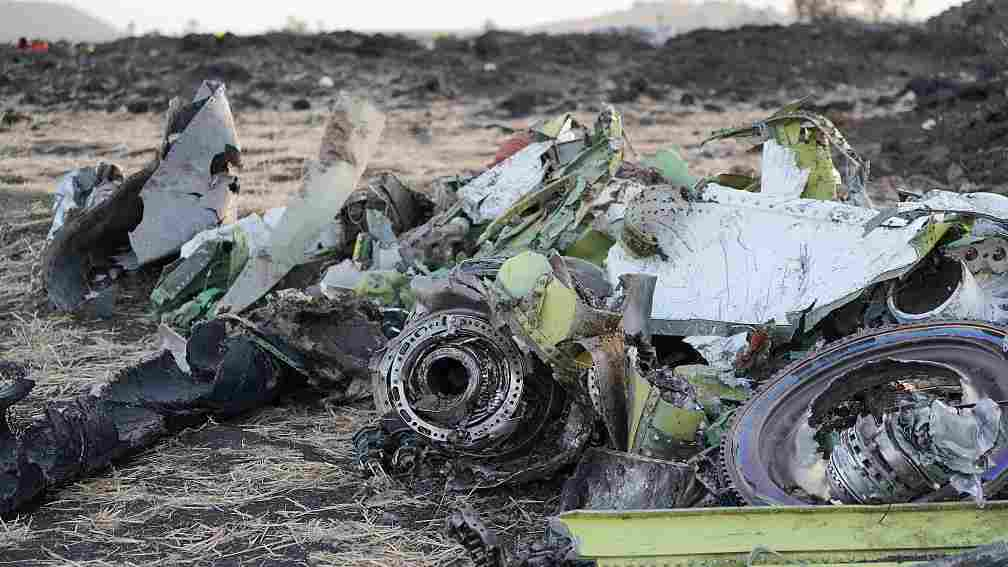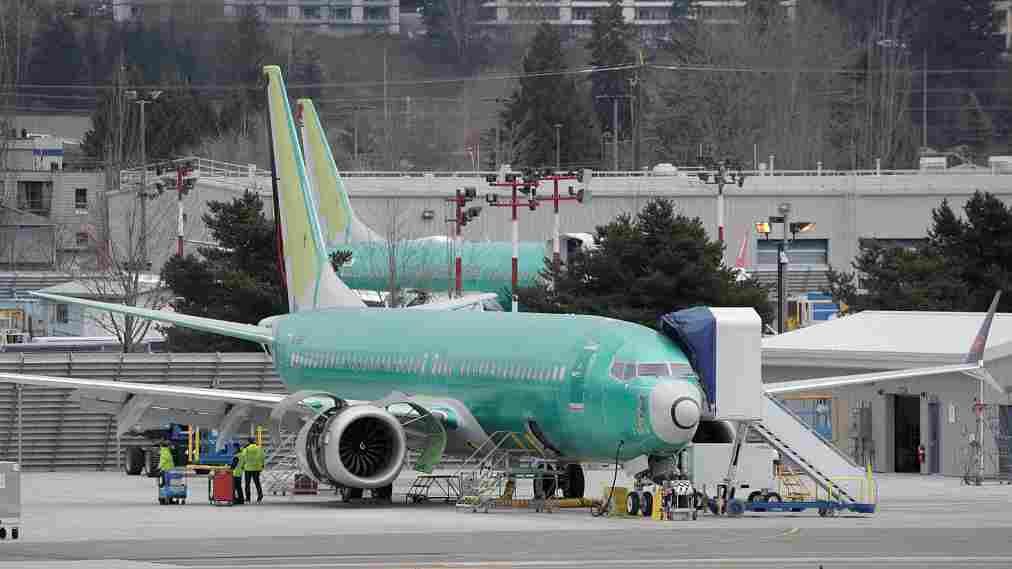
Company
08:13, 12-Mar-2019
U.S. says 737 MAX safe to fly after Ethiopia crash, Boeing shares dip
CGTN

The United States told airlines it was safe to fly 737 MAX 8 planes on Monday as investigators found two black box recorders that will help piece together the final moments of an Ethiopian Airlines jet before it plunged to the ground on Sunday.
Late on Monday, the U.S. Federal Aviation Administration issued a “continued airworthiness notification” to assure operators of the plane that it was safe to fly. It said it was collecting data on the crash and keeping in contact with international civil aviation authorities and would take immediate action if it identified any safety issues.
Southwest Airlines Co, which operates the largest fleet of 737 MAX 8s, said it remained confident in the safety of all its Boeing planes even as it received a rush of queries from customers wanting to know if they were booked to fly on a 737 MAX 8.
The discovery of black box recorders means the cause of the crash may be quickly understood, as long as recordings are not damaged, although it typically takes a year for a full detailed investigation to be completed.
The planemaker, the airline and its insurers face big claims after the crash, industry sources said. The insured value of the plane itself was likely around 50 million U.S. dollars.
On top of that, Boeing may face lawsuits from victims' families in the United States, where legal compensation payments for people killed in plane crashes could run around 2 million to 3 million U.S. dollars per person, depending on the law applied, compared to about 200,000 U.S. dollars in Ethiopia, according to Justin Green, a New York-based aviation lawyer who has represented families in cases against Boeing.
Boeing declined to comment on its insurance cover.
Boeing shares hit hard
Boeing Co shares tumbled more than five percent on Monday after China, Indonesia and Ethiopia ordered airlines to ground the aircraft maker's best-selling line of jets after the second deadly crash of one of the planes in just five months.
While the slide lopped off 12.7 billion U.S. dollars in the market value of one of the 10-year bull market's powerhouse stocks, the one-day loss was far more limited by the closing bell than earlier in the session as some investors bet long-term risks were limited.
Dropping in the early moments of trading by the most since Wall Street reopened after the September 11 attacks in 2001, the stock recouped nearly two-thirds of its losses on the heaviest trading volume in nearly six years.

Boeing 737 MAX aircraft are parked at a Boeing production facility in Renton, Washington, U.S. March 11, 2019. /VCG Photo
Boeing 737 MAX aircraft are parked at a Boeing production facility in Renton, Washington, U.S. March 11, 2019. /VCG Photo
Some investors saw that dip as an opportunity to buy Boeing shares, which have tripled in value over the past three years, sparking a recovery. The shares closed down 5.3 percent at 400.01 U.S. dollars. They hit a record high of 446 U.S. dollars last week.
The new MAX 8 variant, with bigger engines designed to use less fuel, entered service in 2017. By the end of January this year, Boeing had delivered 350 of the new jets to customers, with another 4,661 on order, and they could become the workhorses for airlines around the globe for decades.
Various worried nations took swift action after the crash.
Ethiopian Airlines, which has four other 737 MAX 8 jets, said it was grounding them as a precaution. China also ordered its airlines to suspend their 737 MAX 8 jets.
The volatility followed Sunday's crash of a Nairobi-bound Boeing 737 MAX 8 operated by Ethiopian Airlines just minutes after takeoff from the country's capital Addis Ababa, killing all 157 on board. The same model, flown by Lion Air, crashed off the coast of Indonesia in October, killing all 189 on board.
Source(s): Reuters

SITEMAP
Copyright © 2018 CGTN. Beijing ICP prepared NO.16065310-3
Copyright © 2018 CGTN. Beijing ICP prepared NO.16065310-3